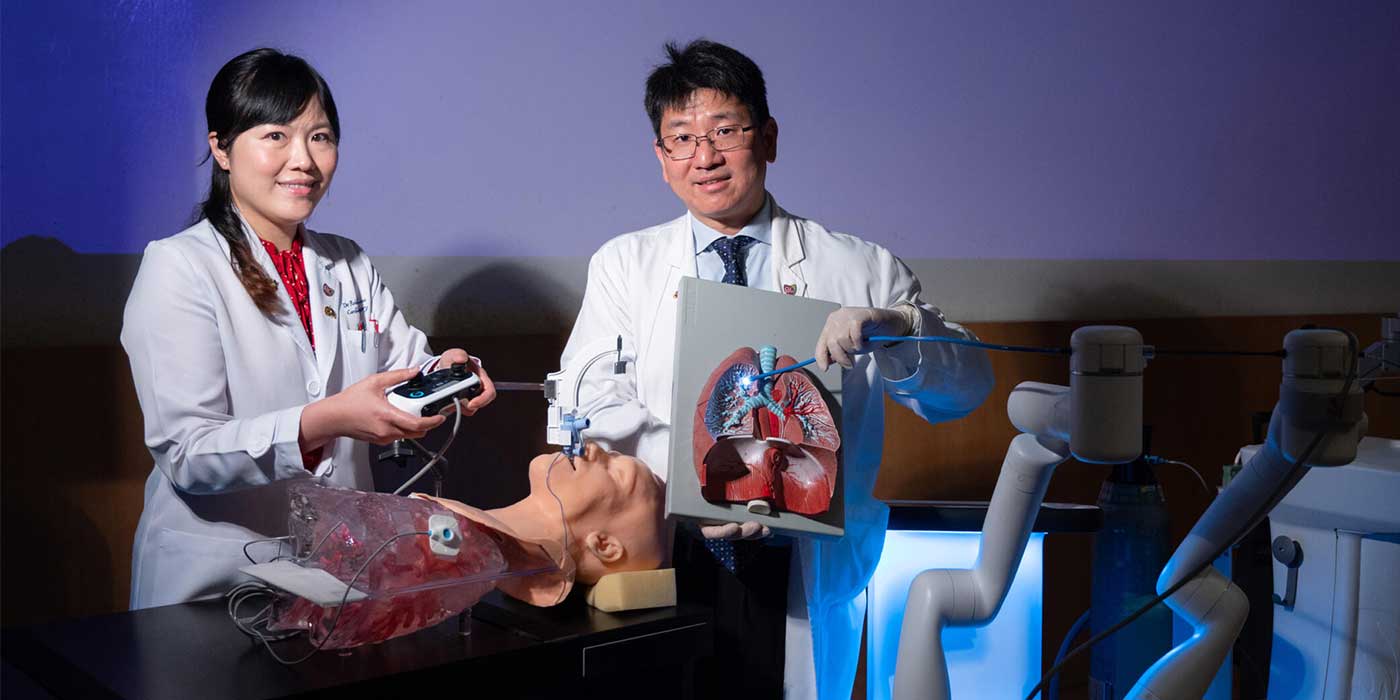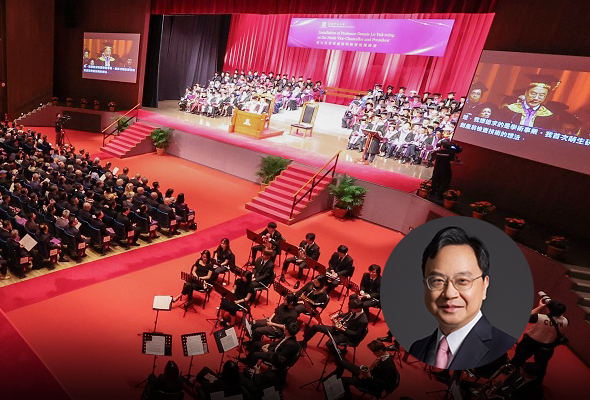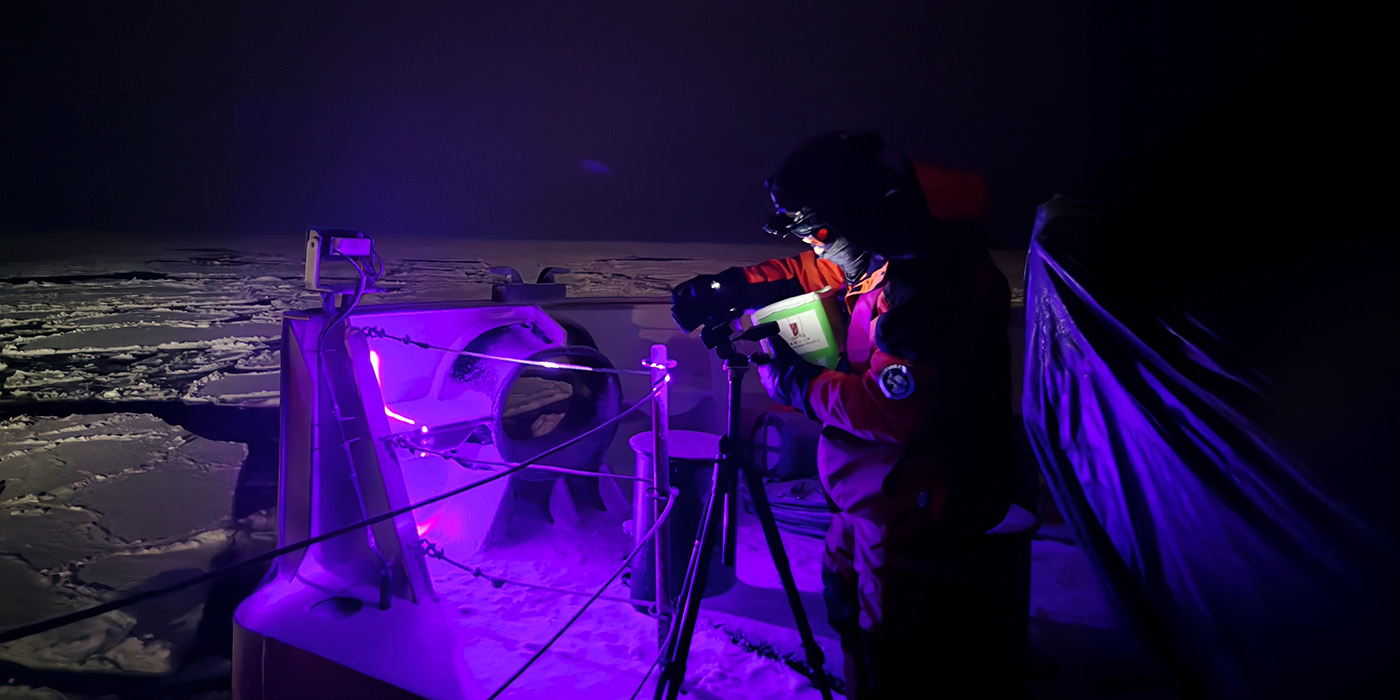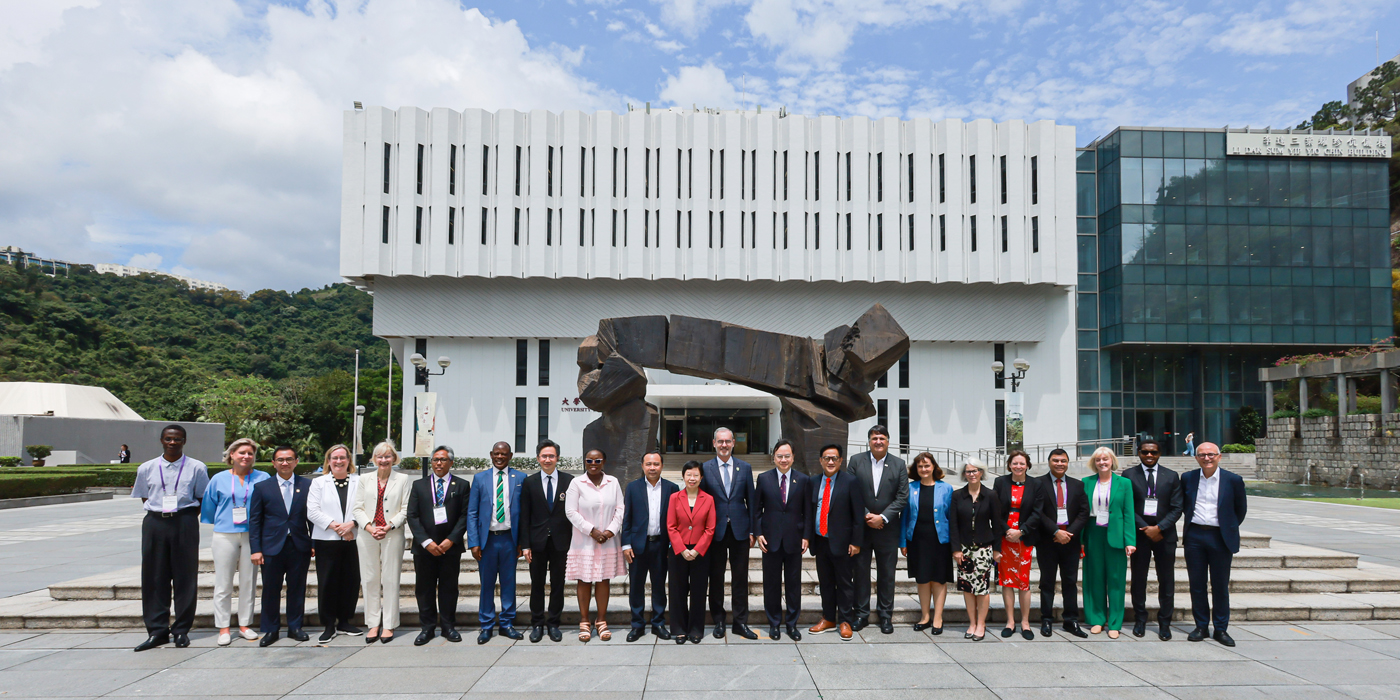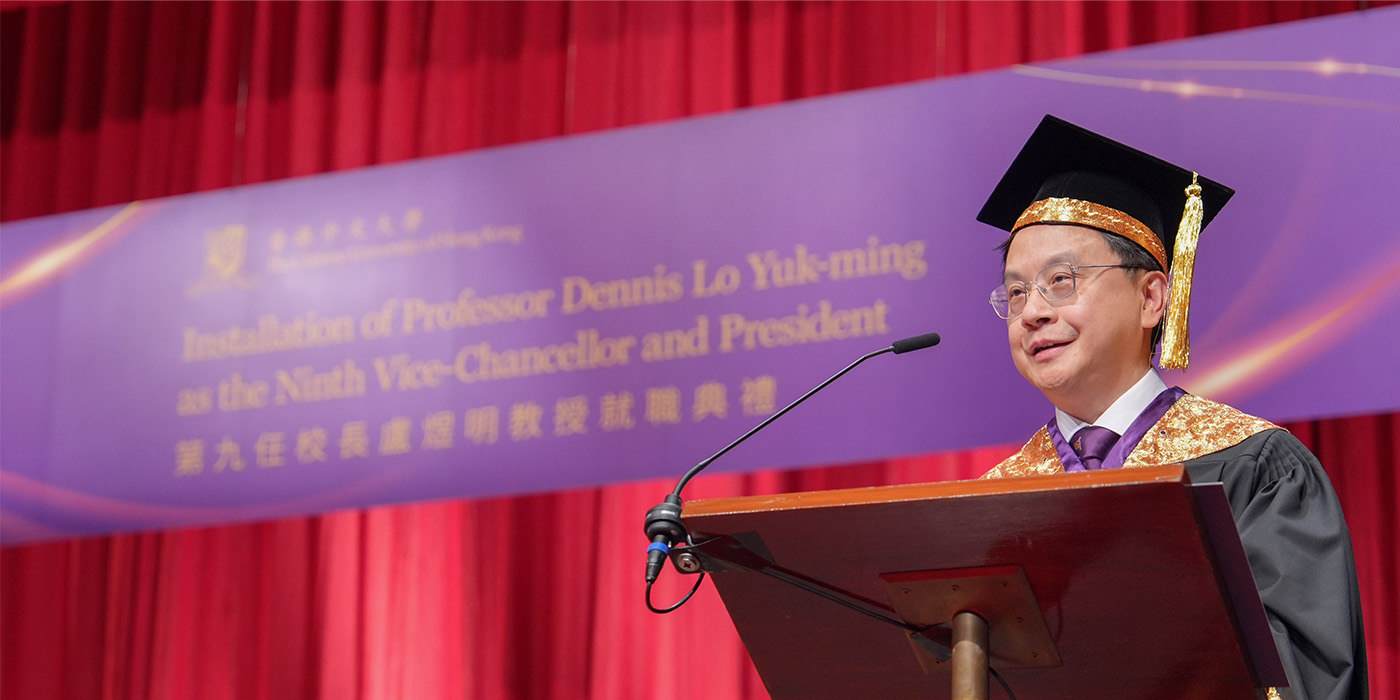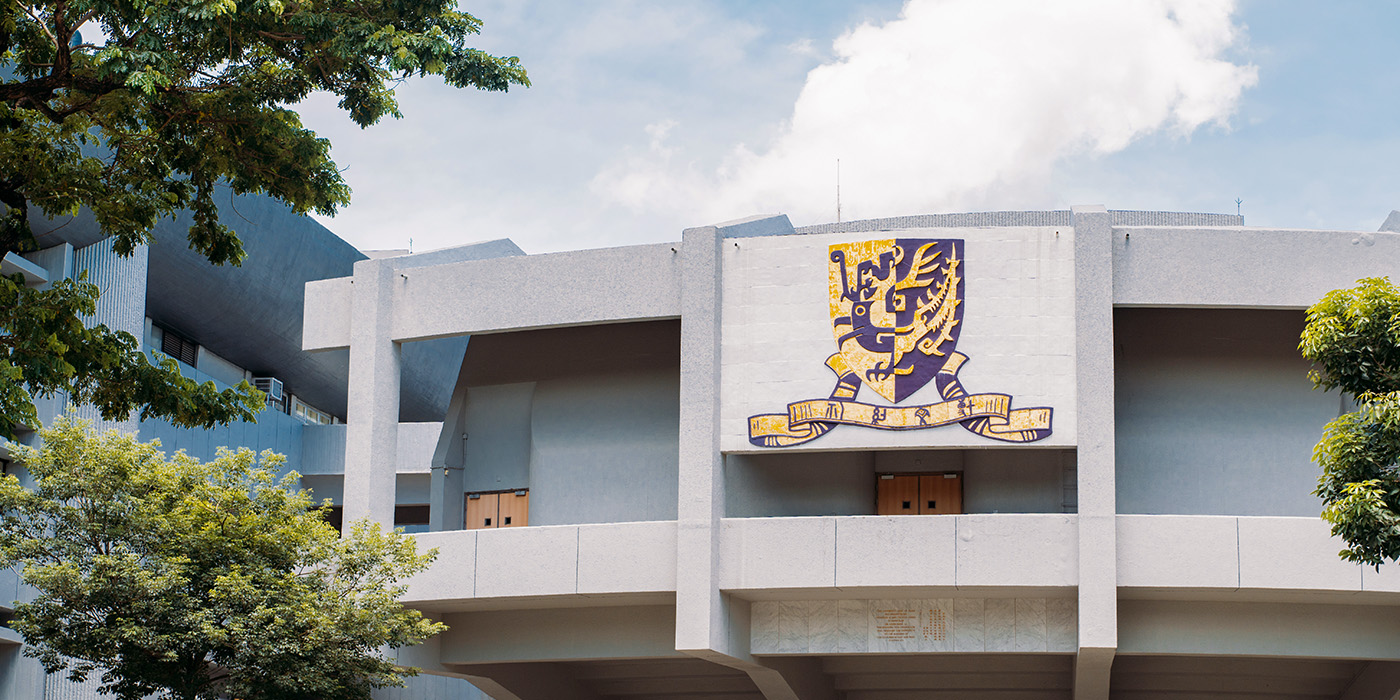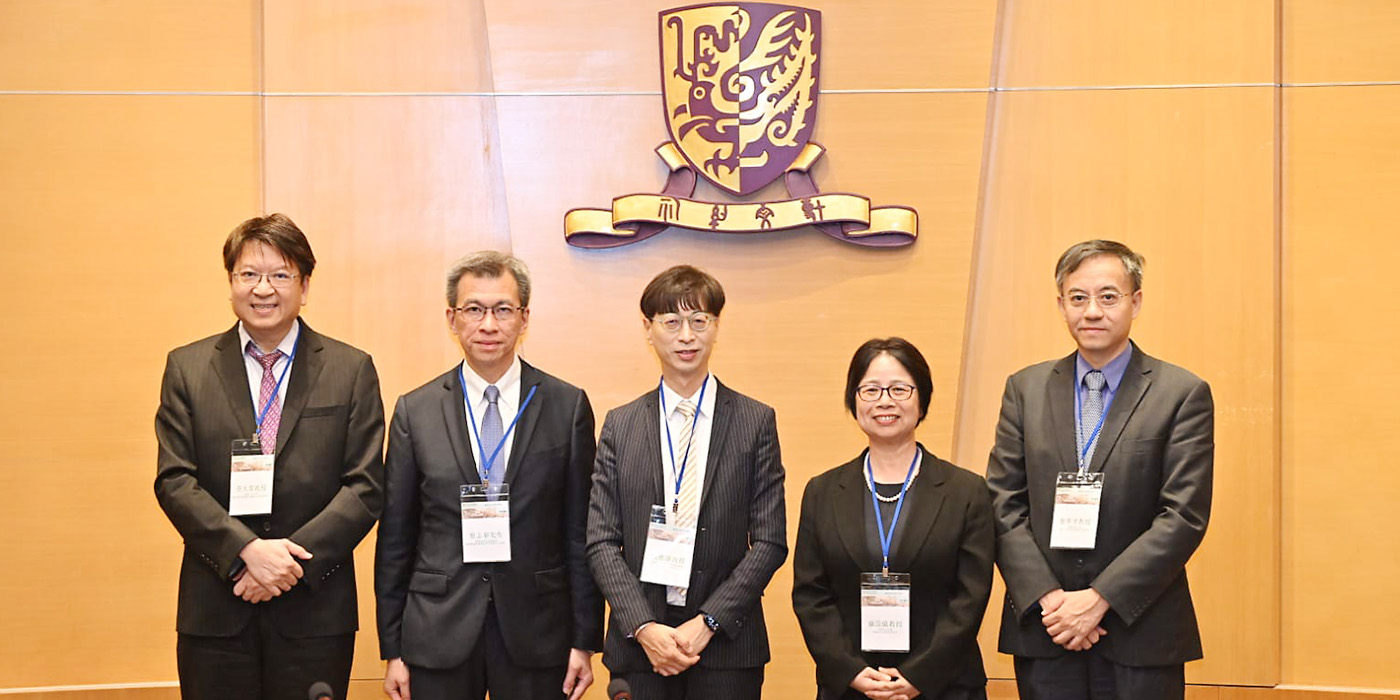Performing world’s first robotic-assisted bronchoscopic microwave ablation of lung metastases
Malignant cancers from different organs often metastasise to the lung. Conventional surgical resection of lung metastases can be associated with significant surgical access trauma and undesirable removal of adjacent healthy lung tissue. CUHK’s Faculty of Medicine performed the world’s first robotic-assisted bronchoscopic microwave ablation of lung metastases. Since October 2022, three patients with a total of six lung metastases have been successfully treated with ablation. This novel procedure allows physicians to accurately access peripheral areas of the lung and perform non-invasive lung sparing microwave ablation of lung metastases. It is now in clinical trial, with a target of enrolling up to 145 patients worldwide.
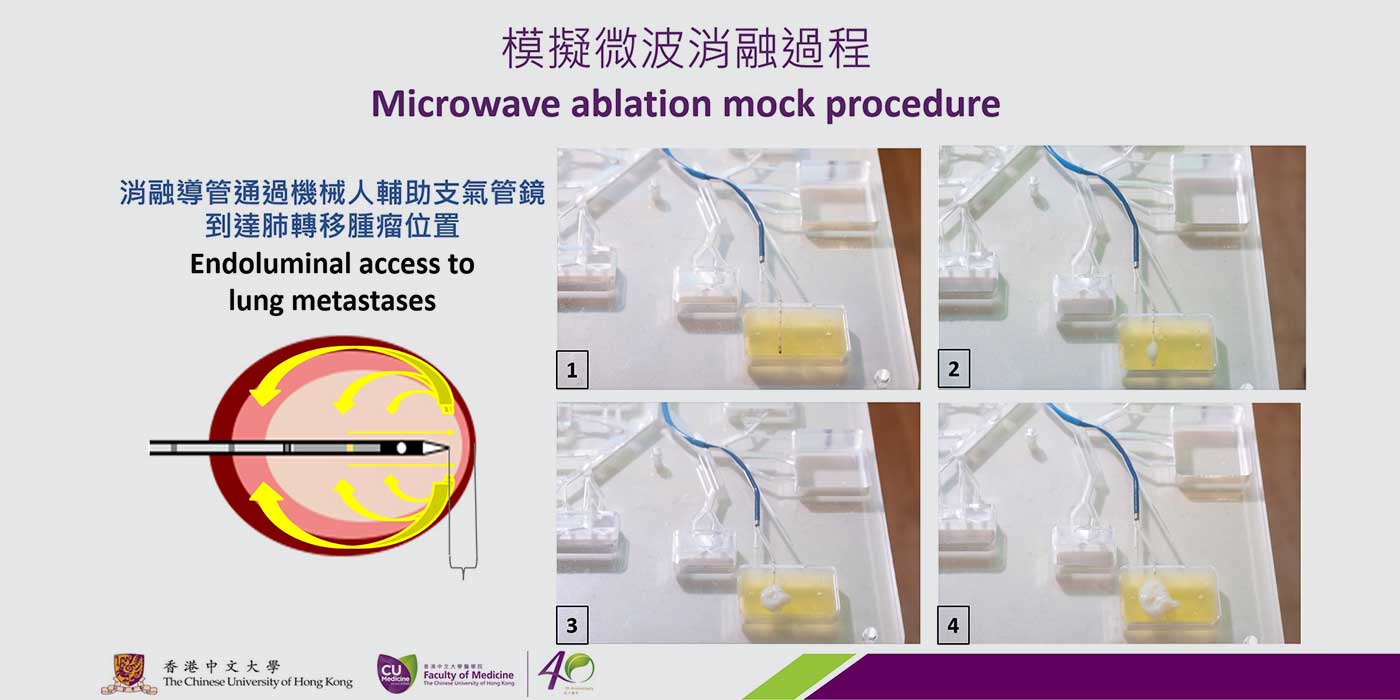
Non-invasive transbronchial microwave ablation of lung metastases is a novel form of treatment that does not require surgical wounds and usually results in no pain or blood loss. Furthermore, the procedure is lung parenchymal sparing, as it does not involve removal of healthy lung tissue. A small catheter is passed down into the small airways to reach the lung metastases, and microwave energy is delivered to heat and destroy the cancer cells. To deliver the catheter precisely and perform ablation of peripheral lung metastases requires an advanced navigation bronchoscopy platform.
Professor Calvin Ng Sze-hang, Professor from the Division of Cardiothoracic Surgery, Department of Surgery, remarked, “Our novel approach using robotic bronchoscopic microwave ablation allows multiple bilateral lung metastases to be treated without incisions or lung resection, meaning almost no impact on patient’s lung function or quality of life.”

